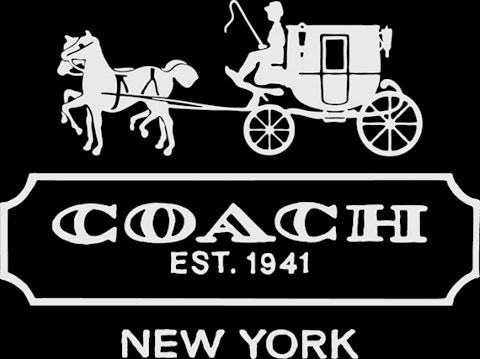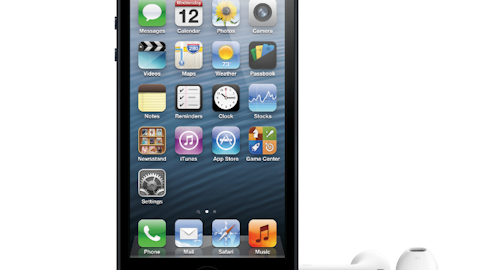Investors certainly aren’t lacking metrics that can be used when evaluating companies: P/E ratio, PEG, ratio, Interbrand Top 100 Global Brands list, to name a few. Sometimes company stock prices move the way measures like these indicate they might, although not always. But there’s another interesting way to evaluate retailers.
First we’ll take a quick look at the method. Then we’ll dive into which retailers look most attractive based on this measure and why.

Q & A
The Q ratio is a measure of a company’s market cap (or its share price times number of outstanding shares) to the replacement cost of its assets. The larger a company’s Q ratio, the greater the share of its value originates from intangible assets (think brand equity, customer loyalty, and innovation). Put simply, the greater its ratio, the more likely a company’s prospects for relevancy and survival. After all, in the world of retail, commoditization is akin to a death knell.
Not surprisingly, the highest Q ratio retailers possess blockbuster brand names. Take a look at the top five publicly held U.S. retailers by Q ratio.
| Company | Q Ratio | 5-Year Stock Return |
|---|---|---|
| Coach, Inc. (NYSE:COH) | 4.98 | 60% |
| Apple Inc. (NASDAQ:AAPL) | 4.26 | 242% |
| Amazon.com, Inc. (NASDAQ:AMZN) | 4.03 | 249% |
| Whole Foods Market, Inc. (NASDAQ:WFM) | 3.91 | 135% |
| Tractor Supply Company (NASDAQ:TSCO) | 3.85 | 372% |
Sources: Deloitte , Yahoo! Finance. Stock return data as of Jan. 30, 2013.
All five of these retailers boast Q ratios significantly greater than the U.S. composite retailers’ ratio of 1.59. Apparel/footwear boasts the highest Q ratio of all retail formats. Its composite Q ratio of 3.05 is nearly six times that of department stores, signaling the significance of brand image in this cutthroat industry. Not surprisingly, Apple dwarfs the electronics specialty industry. While this industry has a composite Q ratio of 2.65, its ratio plummets to 0.42 when Apple is plucked from the group.
Sidestepping commoditization
Avoiding the big C in retailing is achieved by building strong brand equity and a fiercely loyal customer base. Coach represents one of the strongest brands in the handbag and accessories market. And as global demand for luxury goods increases, the company’s loyal customers enable profitable expansion into new markets. Considered accessible luxury, Coach’s products allow the company to capture a piece of luxury spending while having a broader consumer base than the very high-end brands. And Coach has managed to be accessible without degrading its brand image.
With its cult-like following of customers, Apple boasts the highest sales per square foot of any retailer in the U.S. But the iDevice maker is facing increased competition and the prospect of persistent margin pressure. However, its recent share price decline largely reflects a more cautious outlook and doesn’t fully appreciate the strong demand for Apple’s existing products, likely pipeline of new ones, and opportunities in China.
Whole Foods Market is committed to food quality and safety, environmental sustainability, and animal welfare. These values represent the main reasons their loyal customer base consistently plunks down big dollars at the registers. Thankfully for Whole Foods, their higher-end consumers have the coin to do so, as they’ve held up significantly better than lower-income households during the economic downturn.
Market dominance and convenience have made Amazon.com and Tractor Supply widely successful with their respective customers. Amazon.com is synonymous with online shopping, unparalleled product selection, and convenience. And this will only continue as the company expands its same-day delivery service and builds new warehouses close to major cities to accommodate faster shipping times.
Meanwhile, Tractor Supply conveniently caters to farmers and ranchers who live far from cities. Its business model benefits by being somewhat insulated from big-box rivals that are more dependent on suburban locations. Like Amazon, Tractor Supply offers a plethora of diverse and unique goods. Where else can you buy livestock and licorice under the same roof 100 miles from the closest city?
Bottom line
Foolish investors know it’s not wise to evaluate a company based on a single metric. So, gauge those measures you feel are most important. Based on my research, I like Apple the best of these stocks right now. I believe the company’s long-term growth prospects remain very compelling, despite the recent bumps in the road. And I think its stock is terrifically priced today.
The article 1 Interesting Way to Evaluate Retailers originally appeared on Fool.com and is written by Nicole Seghetti.
Fool contributor Nicole Seghetti owns shares of Apple. The Motley Fool recommends Amazon.com, Apple, Coach, and Whole Foods Market. The Motley Fool owns shares of Amazon.com, Apple, Coach, and Whole Foods Market.
Copyright © 1995 – 2013 The Motley Fool, LLC. All rights reserved. The Motley Fool has a disclosure policy.





